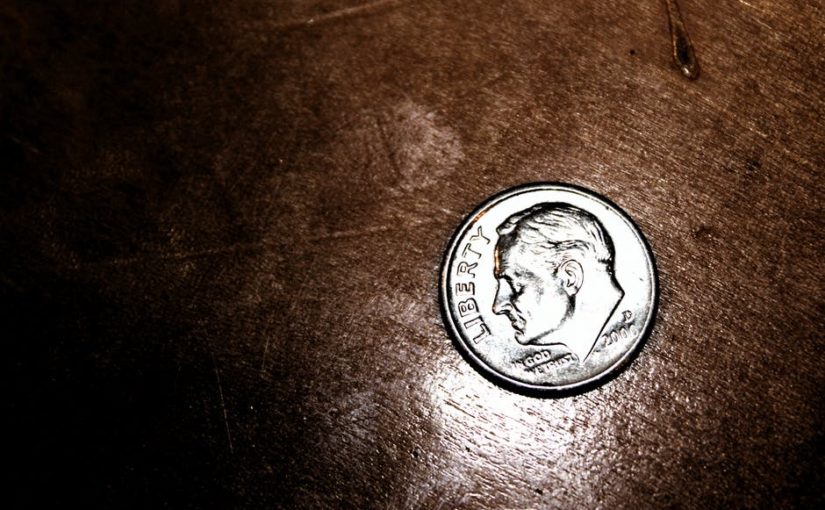Col. Pickering: “Have you no morals, man?”
Alfred P. Doolittle: “Nah, can’t afford ’em. Neither could you, if you were as poor as me.”
~ My Fair Lady (Alan Jay Lerner)
It creeps up in political debates or when you read the comments after an article about the atrocities going on worldwide or that took place in history: The idea that we’re better people because we know better.
We look with disdain at drug addiction, mental illness, domestic violence, thievery, racism, religious extremism, and the shedding of innocent blood. We shake our heads, click our tongues, and mutter, “God, I thank you that I am not like other people—robbers, evildoers, adulterers.”
It’s like we think we can take credit for what the Victorians called “good breeding.”
I have tried many a time over the years to imagine what type of person I would be if I was born in another country, family, regime, social class, or time period. I can imagine myself recreated a thousand times over, like the theory of parallel universes where in some worlds you’re better and in others much worse. But this can be overwhelming, so let’s start with something seemingly small. Consider your good manners:
Were you born saying please and thank you, putting others first, and observing the Golden Rule, or was social etiquette grilled into you by parents and teachers over the course of many years?
I can think of many examples from my own childhood in which my natural inclination was the wrong one, and someone had to correct me.
To share just one, my parents were looking after a mentally disabled man who needed 24/7 care and couldn’t speak beyond the odd mumble. One day he was trying to eat an ice cream cone and was making a mess, struggling to get it in his mouth. A mere child, I began snickering as I watched. Immediately filled with righteous indignation, my mother took me to another room and admonished me for my behavior. I was ashamed and sorry for what I had done. And from that time onward, my heart successfully softened, I was very careful how I treated people with special needs. Yet if my mother hadn’t reacted that way, if she’d ignored my behavior or even condoned it – what then?
 Victorian writers spoke of “good breeding” and the genteel class. These were carefully groomed and primed men and women of noble birth, who spent their childhoods being tutored in academia, learning perfect etiquette, proper English, how to draw, play musical instruments, and how to dress fashionably. In contrast to them were the tradesmen and laborers, the common people; many of which were illiterate. Then, as it still is today, those born into the upper class had access to incredible privileges that could only be dreamed of by the lower.
Victorian writers spoke of “good breeding” and the genteel class. These were carefully groomed and primed men and women of noble birth, who spent their childhoods being tutored in academia, learning perfect etiquette, proper English, how to draw, play musical instruments, and how to dress fashionably. In contrast to them were the tradesmen and laborers, the common people; many of which were illiterate. Then, as it still is today, those born into the upper class had access to incredible privileges that could only be dreamed of by the lower.
In his treatise on manners, Jonathan Swift said:
“Therefore I insist that good sense is the principal foundation of good manners; but because the former is a gift which very few among mankind are possessed of, therefore all the civilized nations of the world have agreed upon fixing some rules for common behaviour . . . to supply the defects of reason.”
Good sense being a gift, those of us who are naturally more sensitive to the feelings of others can take no more credit for the virtue than those who required training (also a gift). And even possessing a gift isn’t enough. How many artists or singers were born with perfect technique? Sure, they had an innate talent (potential), but it still had to be honed over many years of study and practise.
So, what of those who don’t have the means to study and practise? Their gift remains an unfertilized seed. And what of those who are never taught any manners and etiquette, never taught moral rectitude, never taught to read? We call them trash; showing contempt for our Maker. (See Proverbs 17:5)
Imagine for a moment that you were born in Africa, kidnapped by extremists, and raised as a child soldier. After being taught nothing but cruelty, hatred and violence much of your young life, what sort of man will you be once grown? Why the sort of man we read about in the papers who burns villages and rapes and murders its inhabitants. We read about him (and those working with him) with utter disgust, shuddering that such evil men exist.
But what was the raw material of that man? What might he have been under different circumstances?
“If I belittle those whom I am called to serve, talk of their weak points in contrast perhaps with what I think of as my strong points; if I adopt a superior attitude, forgetting ‘Who made thee to differ? and what has thou that thou has not received?‘ then I know nothing of Calvary love.” ~ Amy Carmichael
Scripture tells us that everything we have is a gift (1 Corinthians 4:7, John 15:5). No one chooses where to be born, what IQ to have, what talents to have, what opportunities to have – all of it is predetermined by outside forces – and there’s no telling which abilities will be allowed to develop and which will atrophy. Some of us have been given great wealth, others very little.
Now, we might insist we can take credit for our skills because of the years we spent studying and practising through hard work and dedication, but who gave us the privilege and the ability for such things in the first place? I can no more glory in my talents then I can glory in my eyesight. (I should note, however, that there is a difference between glorying and enjoying.) I can not even glory in my hard work and dedication, for what of the beggar woman who would gladly work hard for the same ends if only her life situation didn’t make that impossible? Every good and perfect gift is from above (James 1:17).
That being said, I am by no means claiming that who we are is entirely dependent upon environmental factors.
Time and again we learn of people raised under the best possible circumstances who nevertheless grew up ruthless and corrupt. And conversely, we know of innumerable others who were raised under terrible circumstances, but by the grace of God became good and caring citizens. Nature and nurture both play a role in shaping us, to be sure, but they are by no means the final authority. We are each born with a sin nature (that is to say, none of us are perfectly good), which is why our natural inclinations are often wrong.
It is the daily choices we make, combined with inward and outward forces, good or bad, that accumulate into the man or woman we will one day become. Now don’t get me wrong here, I’m not saying that if we’re abused or brainwashed in childhood we’re somehow exempt from moral responsibility as adults; I’m only saying that we’ve had much less control over our fate than we like to think.
Yet the question isn’t so much what are our particular raw materials, but what have we done with what we’ve been given?
Consider the parable of the poor widow:
Jesus sat down opposite the place where the offerings were put and watched the crowd putting their money into the temple treasury. Many rich people threw in large amounts. But a poor widow came and put in two very small copper coins, worth only a few cents.
Calling his disciples to him, Jesus said, “Truly I tell you, this poor widow has put more into the treasury than all the others. They all gave out of their wealth; but she, out of her poverty, put in everything—all she had to live on.” (Mark 12:41-44)
 Scripture teaches us that “the last will be first and the first will be last.” Only God knows the true heart of a person; appearances can be deceiving. When someone raised in a home where she is taught her whole life to be cruel does a small act of kindness toward another, it may seem to us so utterly insignificant as to be laughable; but for all we know, her tiny act of kindness might mean ten times more to God than our easy acts of abundant kindness. Why? Because she is giving out of her poverty, while we are giving out of our wealth.
Scripture teaches us that “the last will be first and the first will be last.” Only God knows the true heart of a person; appearances can be deceiving. When someone raised in a home where she is taught her whole life to be cruel does a small act of kindness toward another, it may seem to us so utterly insignificant as to be laughable; but for all we know, her tiny act of kindness might mean ten times more to God than our easy acts of abundant kindness. Why? Because she is giving out of her poverty, while we are giving out of our wealth.
When a celebrity worth hundreds of millions gives a few thousand dollars to charity they are often praised by the media for their generosity. But when you think about their net worth, you realize that a gift of ten grand is no more than pocket change to them. It would be like if I gave a fiver to a homeless man and then was praised for it in the town newspaper. Perhaps this is how many of our acts of “charity” look to God, the giver of all wealth, who sees quite clearly that we’re pridefully giving pocket change when we could be giving so much more.
And this applies to all our gifts, not merely income.
Those of us who have been blessed with great wealth (financial, physical, mental, emotional, and spiritual wealth) are actually held to a higher standard than those who have not. Luke 12:48 says, “From everyone who has been given much, much will be demanded; and from the one who has been entrusted with much, much more will be asked.”
Only God knows where people come from and why some of them are monsters – and only God knows if they are redeemable. We can not possibly know. So, let us prayerfully search our own hearts and ask God to reveal to us whatever types of wealth we might be squandering.
Are we priding ourselves on our easy pocket change while judging those who have only pennies? Because if all we possess is a gift, what right do we have to click our tongues at others?
Brothers and sisters, think of what you were when you were called. Not many of you were wise by human standards; not many were influential; not many were of noble birth. But God chose the foolish things of the world to shame the wise; God chose the weak things of the world to shame the strong. God chose the lowly things of this world and the despised things—and the things that are not—to nullify the things that are, so that no one may boast before him. (1 Corinthians 1:26-29)


3 thoughts on “Why pocket change is nothing to brag about”